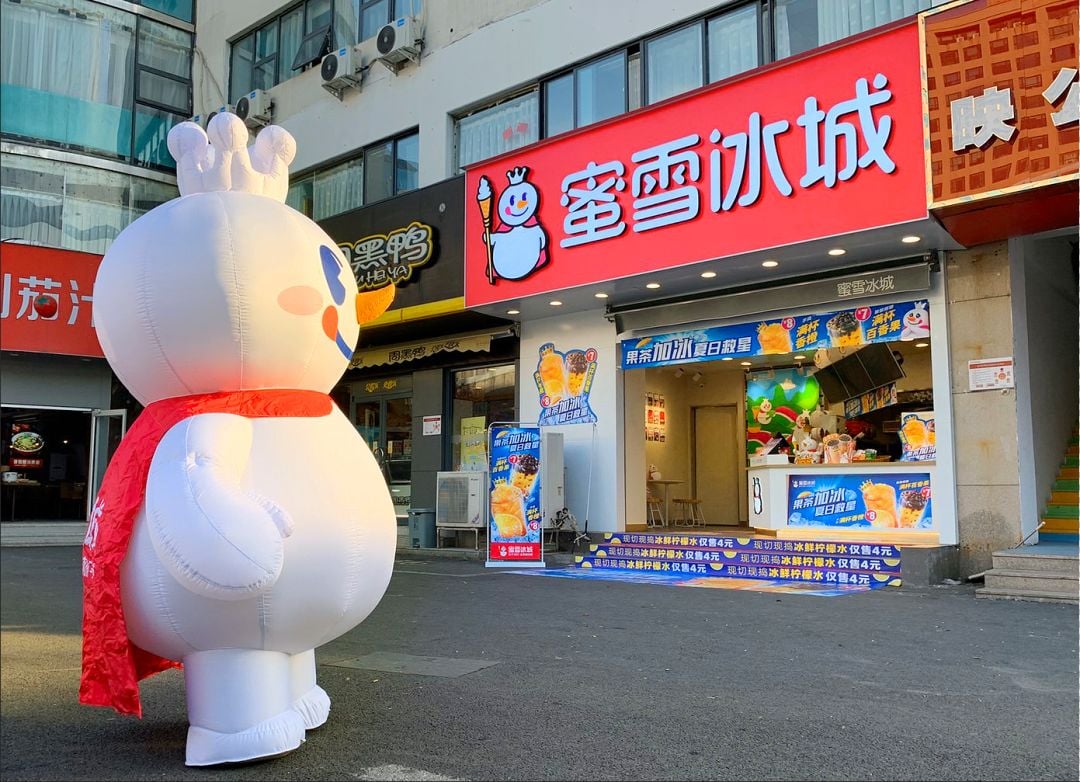In 2023, if you love McDonald’s and are a regular at this fast food chain, congratulations, you are officially part of China’s hottest internet clique, “Màimén” (麦门).
In China’s digital world, mén 门 is the character used to describe like-minded people. Coined at the end of 2022, the term “Màimén” first gained popularity on the lifestyle platform Xiaohongshu as a shorthand for McDonald’s enthusiasts. Since 2017, McDonald’s has doubled its restaurant count in China to 5,500, making the country its second-largest market. Màimén has grown into an enormous online community where the enthusiasts call themselves “麦门信徒” (the believers of Màimén) with the slogan “麦门永存” (Màimén forever).

On Xiaohongshu, the hashtag #Màimén has amassed over 416 million views. Posts related to Màimén have gone viral. One Xiaohongshu user shared her experience with a McDonald’s delivery order in one post, which received over 45,000 likes. She left a note in her order, “I’m a pious Màimén believer. Can I have some crispy fries to try out, please? Màimén, my forever god.” To her surprise, the staff responded to her request with a handwritten note on the receipt, “Of course, my believer. Màimén forever!” and gifted her a free pineapple pie and spicy chicken wings along with the crispy fries.
According to the discussion online, Màimén, or “Màimén forever,” is the code to identify group members. The interaction mentioned above has been emulated as a group activity within the Màimén community, establishing a popular trend on social media. In a similar fashion, when requesting some extra fries or chicken nuggets, enthusiasts add notes in their delivery orders with the last sentence “Màimén forever.” Some staff gift customers a box of free fries or extra chicken nuggets and reply to their requests in handwriting, “My pleasure, Màimén believer.”

Under the Màimén umbrella, subcategories like “麦门文学” (Màimén Literature), “麦门穿搭” (Màimén Fashion), and “麦门拍照” (Màimén Photo Shoots) have generated a cult-like following.
Memes that center on “Màimén Literature” have taken the internet by storm. Màimén Literature refers to a unique style of writing that combines exaggeration, an irrational tone, and illogical sentences to describe a passion for McDonald’s, each paragraph ending with the concluding word “Màimén.” It mimics the religious practice of saying “Amen” to show the worship of McDonald’s. For example: “I believe a person can’t be bad if he or she loves McDonald’s. If someone acts pretentious and snobbish when they hear McDonald’s is delicious, they are probably the one who adds sesame sauce to your burger behind your back! Màimén!”
The synergy between McDonald’s and fashion has been seen in numerous collaborations such as the McDonald’s Crocs, and the golden arches are fashion designers’ new favorite motif. Beyond the fancy collaborations, Màimén fashion has effortlessly infiltrated into Chinese youth’s daily lives from the ground level. T-shirts and hoodies emblazoned with “Sorry KFC I Only Eat McDonald’s” are selling fast, while local designers have added the M symbol to their designs.

The Màimén storm has also put McDonald’s restaurants in the spotlight, transforming them into some of China’s hottest Instagrammable photo booths. Turning paper bags into hats, using the toys from kids’ meals as accessories, and dressing up to match McDonald’s colors, Chinese youth adopt this ritual as yet another way to pay tribute to Màimén.

The Màimén fandom has driven the McDonald’s frenzy across the country and brought the brand further commercial success. The restaurant chain has set its eyes on the Chinese market, aiming to reach 10,000 restaurants by 2028. In March 2023, McDonald’s validated the Màimén community in the article “Màimén Màimén, What’s Màimén?” published on its official website. The article explains the term Màimén through memes in the form of Màimén literature. On Xiaohongshu, the verified McDonald’s account has hopped on the trend, interacting with fans and posting its own “Màimén Literature.”
Creating McDonald’s memes is at the core of Màimén fandom. In fact, memes based on Màimén literature have received a great deal of attention on social media. According to a media communication study, memes are a powerful brand marketing strategy since they are a low-cost means of quickly responding to hot news stories, establishing online brand communities, connecting with fan bases, and enhancing brand impressions. Nowadays, social media is a dominant platform for individuals to express themselves, create self-identities, and form subcultures. On Xiaohongshu, where people share memes and participate in the Màimén interactions, Màimén can serve as their new online persona.
Call it ironic or entertaining, the devout praise of Màimén has become a way for Chinese youth to have fun and grasp something tangible in the digital world. While it might seem strange that a subculture is rooted in love for one of the world’s most ubiquitous brands, here McDonald’s provides a shared reference point and canvas for absurdist self-expression. Having McDonald’s in 2023 is not a mundane day-to-day fast food choice but a trendy gesture. The Màimén believers love it because they feel seen and included in this digital community. In this sense, their love of McDonald’s is well justified.
“I never thought it would be a cool thing if I eat McDonald’s regularly,” said Shuni Wang, a 27-year-old accountant in Inner Mongolia. “I love McDonald’s because I don’t know what else to eat. After hearing about ‘Màimén,’ I feel trendy and like I belong whenever I eat it.”
Banner image by Haedi Yue.


















